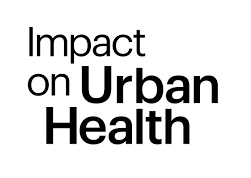Understanding the experiences and perspectives of people more likely to be negatively impacted by COVID-19
Impact on Urban Health is an independent place-based health foundation committed to tackling complex health challenges across Lambeth and Southwark
Team:
Jonathan Carmel
Tyler Fox
Sebastian Turano
Marcus Tayebwa
Elaine Brown
Betty Efemini
When the UK entered a national lockdown as a result of the Covid-19 pandemic in March 2020, the nation was plunged into a situation unlike anything many of us had experienced before. We began working with our Community Researcher team to explore the challenges and implications of the pandemic on residents of Lambeth and Southwark in partnership with Impact on Urban Health (formerly Guys and St Thomas’ Charity).
What did we do?
Over an initial three-month period, the team conducted interviews once a fortnight with 40 local residents who were likely to be more negatively affected than average by Covid-19, due to their health, family and financial circumstances. This includes single-parent families, people living on a low income or in insecure work and people with pre-existing health conditions. 78% of people interviewed were Black and 65% had at least one health condition such as diabetes, cancer or lung problems.
Our researchers were able to build up a relationship organically with the participants over the course of their time together using a semi-structured interview style. Importantly, the positionality of our Community Researchers allowed insider access to uncover insights into the delicate emotional and physical wellbeing and various coping mechanisms people had been using in the pandemic. We worked closely with our Community Researchers and local residents to highlight issues that might otherwise go undetected and to develop practical ideas for how these can be addressed.
After each round, we transcribed the interviews and conducted a thematic analysis to identify which issues were forming patterns amongst interviewees. Alongside this, we used demographic data to analyse and compare the patterns amongst different groups and identities.
It was important to our team that throughout this process the participants being interviewed felt included and represented. Therefore, we ensured that our insights were relayed back to community members and researchers for their feedback and further insights.
‘Interviewees voiced that it was a morale boost for them to feel they were being heard and that it was therapeutic for them to have an outlet for their worries and anxieties, and space to discuss their plans for the future.’
Marcus Tayebwa, Community Researcher
What did we find out?
In October 2020 our Community Research team created a film talking through some of our findings and perspective from this first phase – you can watch this here and below.
Some of the key insights we uncovered included:
During the lockdown, people had limited access to services and were relying much more on their social support network, including friends, family, neighbours and community support groups
People were especially challenged by social isolation and connected much more online
Many people were sceptical about the inconsistent advice given by medical professionals and the government
People weren’t sure which guidelines to follow so they were making their own decisions about what kind of restrictions to stick to
People were frustrated about life plans being disrupted and a lot of people became more entrepreneurial during this period – especially young people
The pandemic had a huge impact on mental health
The situation with global racial tensions compounded feelings of frustrations and anger
A lot of people weren’t entitled to government support and many don’t understand the process
Food poverty was a massive issue with a steep increase in food bank use as the pandemic stretched on
What’s next?
Impact on Urban Health aims to use the findings of this research to shape and influence which initiatives they will fund to support the public during this time Additionally, this project has now entered Phase 2, and since December 2020 we have begun interviewing a new cohort of 50 residents.
Our approach to community research and engagement throughout the COVID-19 pandemic and crucially the work of the community research team has also been influential in the development of a new portfolio at Impact to Urban Health focused on creating equitable access to trusted information about the vaccines. You can read more about this programme here.
Talking about this new portfolio, Louise Mousseau, Portfolio Director said “I want to give a special thank you to the Community Researchers for bringing the rich insights that have led us to this work.”

